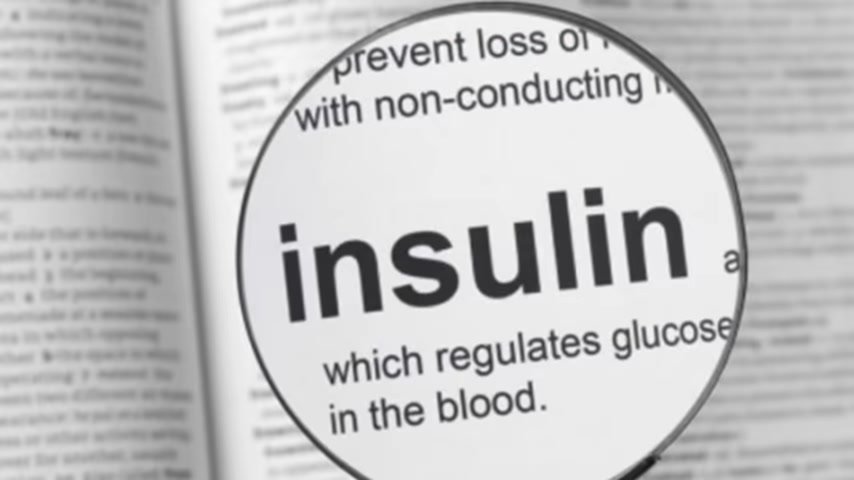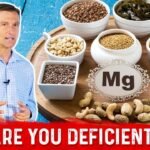Table of Contents
Brief The Article:
Common “Metabolism Boosters” Don’t Really Work:
- Caffeine/Coffee: Stimulates your nervous system, not your metabolism, and can raise cortisol, leading to weight gain.
- Green Tea: Offers a negligible metabolism boost.
- Chili Peppers: Create heat but don’t actually burn fat.
- Frequent Eating: Raises insulin levels, potentially leading to fat storage instead of fat burning.
What Matters More Than Speed is Fuel Source:
- It’s crucial to burn fat, not just sugar, for effective weight loss.
Real Reasons for a Slow Metabolism:
- Age: Metabolism naturally slows down with age.
- Past Diets: Yo-yo dieting can damage your metabolism.
- Insulin Resistance: A major culprit caused by chronic high-carb consumption. It prevents your body from burning fat effectively.
The Importance of Addressing Insulin Resistance:
- High insulin levels promote sugar burning and hinder fat burning.
- Keto diet and intermittent fasting can help lower insulin levels and promote fat burning through ketosis.
Other Factors Influencing Metabolism:
- Thyroid issues (often linked to estrogen or organ problems)
- Stress (raises cortisol)
- Growth Hormone (increased by quality sleep, intense exercise, and low sugar intake)
Dietary Considerations:
- Protein: Focus on moderate amounts of high-quality protein for repair, not just calories.
- Fat: Healthy fats are important for satiety, hormone production, and intermittent fasting on a keto diet.
The Key Takeaway:
- Focus on addressing the root causes of a slow metabolism, such as insulin resistance, stress, and hormonal imbalances, rather than chasing quick fixes that don’t deliver lasting results.
In essence, sustainable weight loss is achieved by addressing the underlying issues that hinder your body’s ability to burn fat effectively, not by relying on ineffective metabolism-boosting gimmicks.
So let’s dive into the details…
Why Boosting Metabolism Does Not Work
Many individuals believe that boosting their metabolism is the key to unlocking effortless weight loss. They search for solutions like green tea extract or chili peppers to speed up their metabolism.
However, the reality is that boosting metabolism does not work as simply as many believe. Let’s delve into the reasons behind this and explore the true drivers of sustainable weight loss.
The Myth of Metabolism Stimulation

Numerous myths surround metabolism boosting, leading people down paths that ultimately yield minimal results. Let’s examine why these common methods often fail:
When you consume caffeine or coffee to try to speed up your metabolism, you’re not directly impacting your metabolic rate. Instead, you’re stimulating your sympathetic nervous system, triggering the fight-or-flight response.
This can actually lead to weight gain by increasing cortisol levels, a stress hormone that promotes fat storage, particularly in the abdominal area.
Green tea does offer a slight metabolism boost, but it’s very insignificant for achieving noticeable weight loss. Similarly, chili peppers generate heat but don’t actually burn fat. Fat burning is a metabolic process, not a temperature-driven one.
Some believe that eating more frequently stimulates metabolism. However, this is a misconception. Hunger indicates low blood sugar, not a faster metabolism.
Eating frequently can lead to insulin spikes, hindering fat burning and potentially leading to weight gain.
- Caffeine/Coffee: Does not directly boost metabolism. Instead, it stimulates the sympathetic nervous system, increasing cortisol and potentially causing weight gain. This is a key reason why boosting metabolism does not work.
- Green Tea: Has minimal impact on metabolism.
- Chili Peppers: Do not burn fat through heat.
- Frequent Eating: Does not accelerate metabolism but raises insulin levels, potentially leading to fat storage. This is another reason why boosting metabolism does not work.
Important Information
| Point | Explanation |
| Caffeine/Coffee does not directly boost metabolism | Stimulates the sympathetic nervous system, leading to increased cortisol and potential weight gain. This is a key reason why boosting metabolism does not work. |
| Green Tea has minimal effect on metabolism | The impact on metabolism is small and insignificant for weight loss. |
| Chili Peppers don’t burn fat with heat | Fat burning is a metabolic process, not a temperature-driven one. |
| Frequent Eating raises insulin levels | Can hinder fat burning and contribute to weight gain. This is a major reason why boosting metabolism does not work. |
Understanding Metabolism and Fuel Sources

Metabolism isn’t simply about the speed at which your body burns calories. It’s also about what type of fuel your body is utilizing. Having a fast metabolism but primarily burning sugar instead of fat won’t lead to effective weight loss.
Factors That Slow Down Metabolism
Several factors can contribute to a slow metabolism, and understanding these factors is essential for understanding why boosting metabolism does not work:
- Age: Metabolism naturally declines with age, especially after menopause, due to a decrease in growth hormone.
- Past Diets: Frequent dieting, particularly restrictive calorie-cutting, can damage metabolism as the body adapts to lower calorie intake. This is a significant reason why boosting metabolism does not work.
- Insulin Resistance: Chronic high carb consumption can lead to insulin resistance, where cells become less responsive to insulin. This impairs the body’s ability to burn fat effectively and is a major contributor to why boosting metabolism does not work.
- Age: Natural decline in metabolism with age, particularly after menopause.
- Frequent Dieting: Repeatedly restricting calories can lead to a slow metabolism as the body adapts. This is a core reason why boosting metabolism does not work.
- Insulin Resistance: Caused by high carb intake, it prevents your body from efficiently using fat for fuel. This is a key reason why boosting metabolism does not work.
Important Information
| Factor | Explanation |
| Aging | Natural decline in metabolism with age, especially after menopause. |
| Frequent Dieting | Repeatedly restricting calories can damage metabolism as the body adapts. This is a core reason why boosting metabolism does not work. |
| Insulin Resistance | Chronic high carb intake leads to insulin resistance, preventing your body from efficiently using fat for fuel. This is a key reason why boosting metabolism does not work. |
Insulin Resistance and Metabolism

Insulin resistance plays a significant role in why boosting metabolism does not work. When insulin levels are chronically high, the body prioritizes burning sugar for fuel, hindering fat burning.
This is where strategies like the keto diet and intermittent fasting become valuable. They help to lower insulin levels, allowing the body to enter ketosis, a state where it burns fat for energy.
- Insulin and Fat Burning: Low insulin promotes fat burning, while high insulin leads to sugar burning. This is a key reason why boosting metabolism does not work.
- Ketosis and Fat Loss: Ketosis, a metabolic state where the body burns fat for fuel, is a direct approach to targeting fat loss. This is a key reason why boosting metabolism does not work.
Other Factors Affecting Metabolism
Beyond age, diet, and insulin resistance, other factors can influence your metabolism:
- Thyroid: An underactive thyroid can slow down metabolism. This is often linked to high estrogen levels or issues with the gallbladder or the liver.
- Stress: Elevated stress increases cortisol, hindering metabolism and potentially leading to weight gain.
- Growth Hormone: High-quality sleep, intense exercise, and a diet low in sugar can increase growth hormone, supporting a healthy metabolism.
- Thyroid: Can impact metabolism, but often related to estrogen levels or other organ issues.
- Stress: Increases cortisol, leading to a decrease in metabolism.
- Growth Hormone: Supported by quality sleep, intense exercise, and maintaining low blood sugar.
Important Information
| Factor | Explanation |
| Thyroid | Can impact metabolism, but often related to estrogen levels or other organ issues. |
| Stress | Increases cortisol, leading to a decrease in metabolism. |
| Growth Hormone | Supported by quality sleep, intense exercise, and maintaining low blood sugar. |
Protein and Fat

Optimizing your diet with the right balance of protein and fat is essential for supporting a healthy metabolism.
- Protein: Consume moderate amounts of high-quality protein. It’s crucial for repair and shouldn’t be viewed solely as a calorie source.
- Fat: Don’t be afraid of healthy fats on a keto plan. They promote satiety, support intermittent fasting, and provide essential nutrients for hormones.
- Protein: Moderate amounts of high-quality protein are needed for repair and optimal functioning.
- Fat: Crucial for satiety, hormones, and supporting intermittent fasting on a keto plan.
Important Information
| Nutrient | Explanation |
| Protein | Moderate amounts of high-quality protein are needed for repair and optimal functioning. |
| Fat | Crucial for satiety, hormones, and supporting intermittent fasting on a keto plan. |
Focus on Underlying Issues, Not Just Boosting Metabolism
Instead of seeking quick fixes to boost your metabolism, it’s more effective to address the underlying factors that can contribute to a slow metabolism.

This includes managing stress, prioritizing quality sleep, and focusing on a healthy diet, like the keto diet, that supports fat burning rather than sugar burning.
By addressing these root causes, you can achieve sustainable weight loss and improve your overall health.
Important Information
- Addressing the Root Causes: Focus on factors like insulin resistance, stress, and hormonal imbalances to achieve sustainable weight loss. This is a crucial aspect of understanding why boosting metabolism does not work.
I hope this explanation sheds light on why boosting metabolism does not work and provides you with a more informed and effective approach to achieving your weight loss goals.
Additional-resources
Summary
Some people would even consume pills, coffee, green tea, chili peppers to speed up the metabolic rate – but this doesn’t work.
When you consume coffee to speed up your metabolism, you are not stimulating your metabolism but your sympathetic nervous system (fight or flight mechanism) that could cause weight gain because you also raise the cortisol.
Things that will slow your metabolism:
- Age
- Frequency of diets
- Insulin Resistance
- Thyroid
- Stress
- Growth Hormone
- Protein
- Fat
FAQ
Why is my metabolism not increasing?
Your metabolism might not be increasing due to several factors:
- Age: Metabolism naturally slows down as we age.
- Muscle mass: Less muscle means slower metabolism.
- Diet: Extreme calorie restriction can slow metabolism.
- Genetics: Some people naturally have slower metabolisms.
- Hormonal imbalances: Conditions like hypothyroidism can affect metabolism.
Remember, metabolism is complex and influenced by many factors. Focusing on overall health, regular exercise, and a balanced diet is more effective than trying to “boost” metabolism.
Do metabolism boosters work?
The effectiveness of metabolism boosters is largely overstated:
- Limited scientific evidence: Most “metabolism boosters” lack robust scientific backing.
- Temporary effects: Any boost is usually small and short-lived.
- Potential side effects: Some boosters can have negative health impacts.
- Not a magic solution: They don’t replace the need for a healthy lifestyle.
Instead of relying on boosters, focus on sustainable lifestyle changes like regular exercise, adequate sleep, and a nutritious diet for long-term metabolic health.
Can metabolism really be boosted?
While you can’t dramatically or permanently “boost” metabolism, you can influence it:
- Build muscle: Muscle tissue burns more calories than fat.
- High-Intensity Interval Training (HIIT): Can increase metabolic rate for hours after exercise.
- Eat protein: Has a higher thermic effect than carbs or fats.
- Stay hydrated: Water is essential for metabolic processes.
- Get enough sleep: Poor sleep can negatively impact metabolism.
These methods support overall metabolic health rather than providing a quick “boost”. Sustainable lifestyle changes are key to long-term metabolic efficiency.
Why can’t I have fast metabolism?
Several factors influence your metabolic rate:
- Genetics: Play a significant role in determining your base metabolic rate.
- Body composition: More muscle mass generally means faster metabolism.
- Age: Metabolism typically slows with age.
- Gender: Men often have faster metabolisms due to higher muscle mass.
- Medical conditions: Some health issues can slow metabolism.
Foods that increase metabolism and burn fat
While no foods can significantly “boost” metabolism, some may have a small positive effect:
- Protein-rich foods: Eggs, lean meats, fish (higher thermic effect)
- Spicy foods: Chili peppers (contain capsaicin)
- Green tea: Contains caffeine and catechins
- Coffee: Caffeine can slightly increase metabolic rate
- Water: Staying hydrated is crucial for metabolic processes
- Whole grains: Require more energy to digest than refined grains



